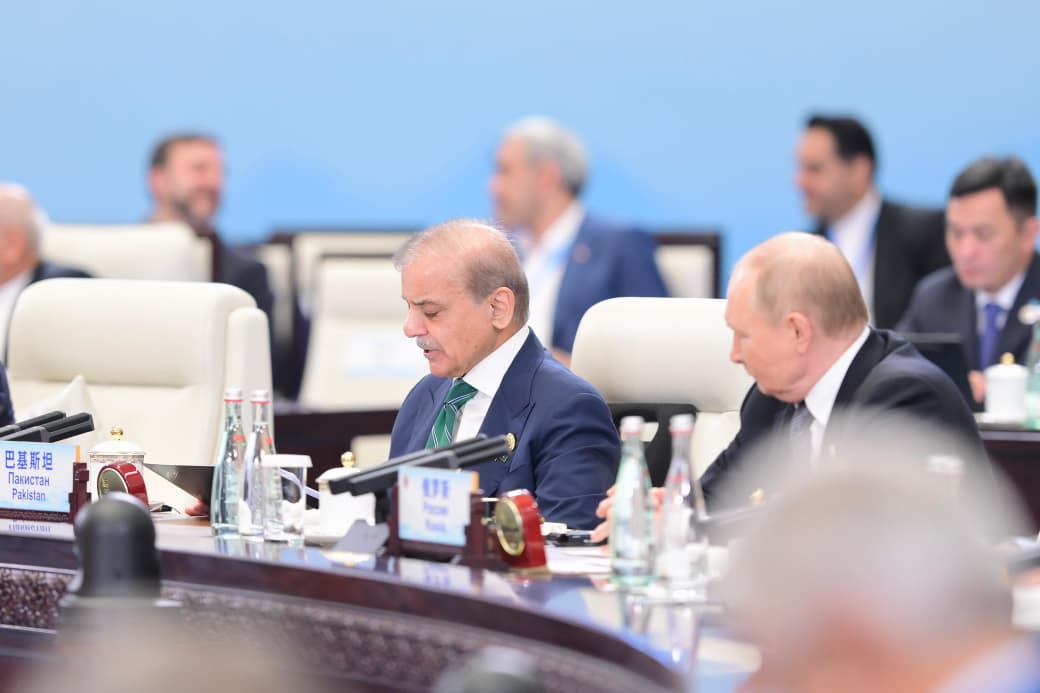DND Report: Pakistan’s effective participation in the Shanghai Cooperation Organization (SCO), along with the coordinated and far-sighted strategy of the government and military leadership, has placed Pakistan on a higher pedestal, and it is now being seriously recognized at the global level.
This is a diplomatic position that could never be achieved before. Today, Pakistan is being given importance in the international community as recognition of its principled position, sacrifices, and diplomatic efforts.
Pakistan’s partnership with various countries has now been built on a balanced basis. Relations with China are not only deep but also long-lasting and based on trust, while positive relations are also being developed with the United States in the areas of security, counterterrorism, and economic cooperation. At the same time, Pakistan’s relations with Middle Eastern, European, Central Asian states, and other countries of the region are also becoming stronger and broader. This fact presents Pakistan as a true net regional stabilizer.
On the other hand, India, which once called itself the “net security provider” in the region, is now isolated globally due to its extremist policies, internal contradictions, sponsored terrorism, and confrontational approach toward neighboring countries. India’s foreign policy failures and border disputes are further weakening its reputation.
Pakistan, through its diplomatic acumen and military strategy, has given a clear message to the world that it will continue to play an effective role in peace and stability in the region. Pakistan’s desire for peace should not be mistaken for weakness, because the beloved country is fully capable of giving a befitting reply to any aggression by the enemy.
The joint declaration of the SCO meeting also fully supported Pakistan’s long-standing position. The rejection of all forms of terrorism, denial of double standards, and condemnation of tragedies like the Jaffar Express and Khuzdar are clear evidence that the international community is seriously recognizing Pakistan’s sacrifices and principled stance against terrorism.

Pakistan’s vision is a peaceful, stable, and prosperous region, where relations with all countries are based on equality, mutual respect, and common interests. This is why today Pakistan is being seen as a country that is playing a key role in peace and stability in the region, and is opening new avenues of development through long-term cooperation with other countries, including the United States.
In an article titled “Field Marshal Asim Munir and Strategic Equilibrium”, the writer established that Pakistan’s new status at the global level is the result of military diplomacy successfully managed under the tenure of Field Marshal Syed Asim Munir. The writer believes that instead of aligning entirely with any international bloc, he projects Pakistan as a state pursuing a policy of “strategic equilibrium.” This approach is vital for a country that cannot afford to alienate either pole in an era of great power competition. Western media, after the Indian military defeat in May 2025, is discussing Field Marshal Syed Asim Munir’s brilliant military diplomacy, calling it the beginning of a new era of diplomatic successes for Islamabad. The Indian defeat provided Pakistan with an opportunity to reclaim its prestigious identity that it had unfortunately lost during the last four decades, as it had been portrayed as a producer of drugs, “Jihadi Johns,” and radicalization. The country that had been the worst victim of terrorism was portrayed as a “land of terrorists” through sheer propaganda that, unfortunately, had not been effectively contested by governments in the past.
After India’s defeat during Marka-e-Haq, U.S. media is writing that Field Marshal Asim Munir is an “Iron Man,” while Chinese media is referring to him as “a pillar of national stability.” His military diplomacy is directly linked with territorial integrity, internal security, and regional peace and prosperity. He is using military relations, resources, and strategies for cooperation, negotiations, and agreements with countries of the Middle East, Central Asia, the Caucasus, as well as European power grids. His style of multilayered military diplomacy reminds one of the classical designs of Greek and Roman eras. During those eras, military diplomacy functioned as a vital tool for fostering alliances, persuasion, multilateral military agreements, and cooperative strategies for enhancing security through collaboration, preventing conflicts, and fostering mutual understanding and trust among international and regional powers.
